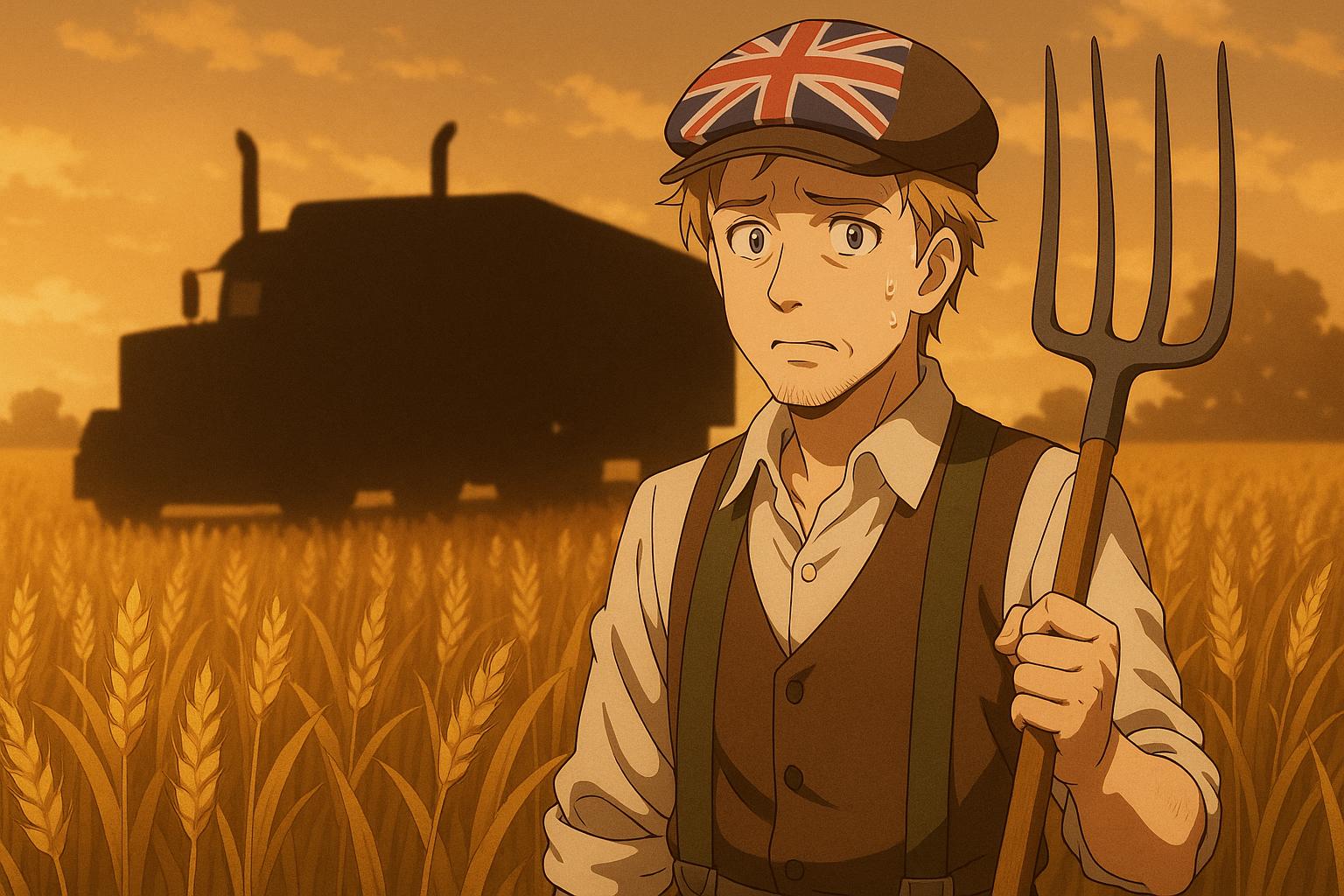Amid intricate negotiations surrounding the US-UK trade deal, concerns are mounting about the potential impact on British family farms, particularly in the wake of tariff concessions aimed at American agricultural imports. James Mills, a 37-year-old arable farmer from York, has voiced alarm over the implications of the agreement, claiming it could represent a "death knell" for many family farms across the UK. The deal, which entails lifting tariffs on US ethanol imports, is seen as a particularly harmful move for farmers who rely on bioethanol production as a supplementary income.
Mills explained that he serves as a supplier of wheat to the Vivergo bioethanol plant in Hull, one of the UK's two largest facilities, both of which collectively consume around two million tonnes of crops each year. With a looming threat of closure due to the influx of subsidised American imports, the viability of British farms is at risk. He expressed a grim outlook: "More and more land is already being sold, and it makes it increasingly difficult to see a viable future as a farmer in this country."
In a similar vein, Sally Hodgson, a small-scale farmer in Derbyshire, raised concerns about competition from American meats, particularly given the high animal welfare standards upheld in the UK—standards that may not be reflected in US farming practices. She stated, “We have such high standards here, and we sell directly to the local butcher. I'm proud of what we produce. But how are we going to compete if it's being exported at a much cheaper cost?”
The trade deal aims to remove tariffs on a total of 1.4 billion litres of US ethanol and also allows the importation of 13,000 tonnes of US beef adhering to UK welfare standards. Critics argue that these concessions are a bait-and-switch, benefiting industries outside agriculture while compromising the sustainability of British farming. Tom Bradshaw, President of the National Farmers' Union, emphasised that farming is being placed at an unfair disadvantage; this is further echoed by industry leaders who have claimed that the deal does not take into account the nuances of food production in the UK.
In response to the concerns raised by British farmers, the UK government has reiterated its commitment to maintaining strict food standards. Environment Minister Steven Reed assured the National Farmers’ Union that the government will not sign trade agreements that would undermine local farming regulations. However, the potential for American imports to flood the market raises fears of a “race to the bottom,” where UK standards might eventually be pressured to align with those of less regulated producers.
Compounding the uncertain landscape for British farmers is the backdrop of a controversial new inheritance tax proposed by the Labour Party. Set to come into effect in April next year, the 20% tax on farms valued over £1 million has sparked vehement opposition among agricultural advocates, who argue that it places an additional burden on family farms already grappling with economic instability.
Despite the promise of reciprocal trade benefits heralded by US Agriculture Secretary Brooke Rollins, who cites the deal as pivotal for both nations, many experts remain cautious. The expansion into British markets for US pork, poultry, and seafood presents further worries about the ability of local agriculture to compete against heavily subsidised products. Comparatively, the prospect of suffering under a deregulated agricultural environment raises fundamental questions about food quality and safety for UK consumers.
In light of all these factors, the ongoing negotiations and resulting agreements necessitate an imperative discourse on the long-term implications for family-run farms in Britain. The trade deal, while crafted to strengthen ties with the US, may inadvertently precipitate the erosion of the traditional agricultural sector that serves as a backbone of rural British communities. With the spectre of multinational corporations looming larger, there is a palpable fear that the generational skills and connections forged in the nutritional backbone of Britain could face irrevocable damage.
The divergence between government rhetoric on protecting local agricultural interests and the realities of trade negotiations continues to spotlight a turbulent future for British farming—a reality that resonates deeply within the farming community.
Reference Map
- Paragraph 1: [1]
- Paragraph 2: [1], [6]
- Paragraph 3: [1]
- Paragraph 4: [5]
- Paragraph 5: [2], [4]
- Paragraph 6: [3]
- Paragraph 7: [1], [2], [7]
- Paragraph 8: [4]
- Paragraph 9: [1]
Source: Noah Wire Services
